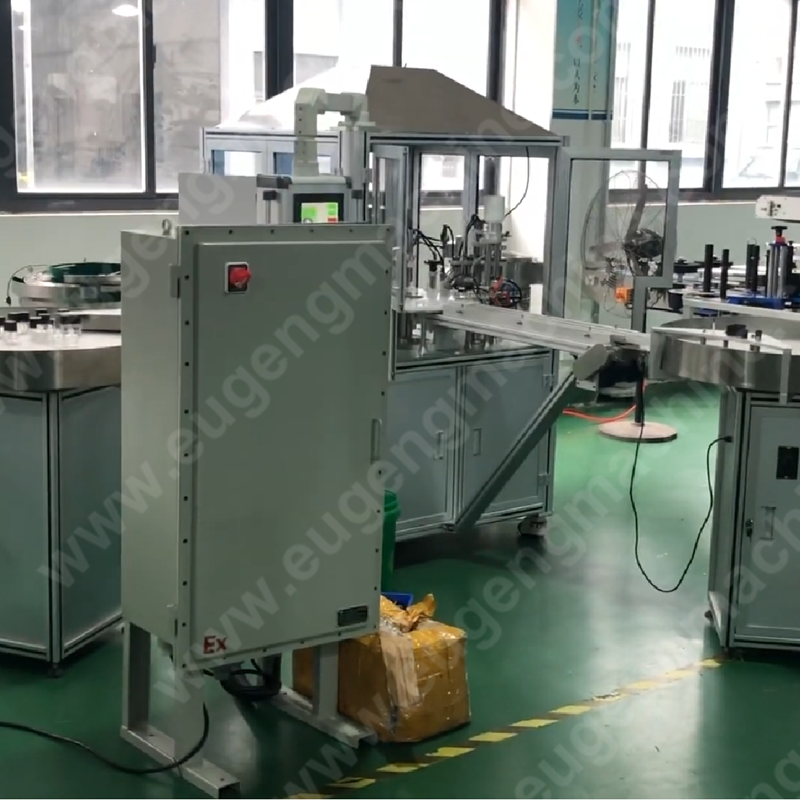Introduction
Though the cosmetic industry is one that moves rapidly; one constant, particularly for consumers willing to pay anything for a quality product, is Nail Polish Fill is Key. Nail polish filling machine is a crucial machine as it helps in keep filling at the particular level within each bottle so that product uniformity can be maintained and buy experience for customers can be improved. In this article, we will discuss what makes such machines so accurate, their components; how they work and significance of routine maintenance.
Understanding the Filling Machine
Nail Polish Filling Machine: An automatic system used to fill the bottles with a particular quantity of product. It begins with clean, void bottles entering the equipment and from then on each one pass through a series of stations to fill, cap, etc until it is prepared for its box. exec The device has to work at maximum efficiency and with the utmost precision because if there is a slight variance in the fill volume from what it should have been, the product would get wasted and customers would be left unhappy.
Key Components for Accuracy
Precision Pumps and Meters
At the core of a filling machine are that accuracy pumps or meters that direct gears to deliver nail polish into each individual bottle. These are pumps that dispense a given volume of product, some sort of a dose to ensure that each bottle contains the right amount. These pumps are highly precise and need to sustain the level of accuracy despite running at high speeds over a long time.
Filling Nozzles
Packing nozzles are designed to pack a product into the bottle without any spilling or wastage of the product. Some of them designed to form a closed space on filling this section, and keeps the filling environment clean. The layout of each heads plays an essential function to stop leaking and so the product is always dispensed precisely, efficiently.
Ensuring Accuracy in the Filling Process
Calibration and Adjustment
Configuring and calibrating the filling machine are important steps in the accuracy process. Machine setting so that pumps or meters supply the accurate volume of product to each bottle. The machine needs to be re-calibrated from time to time since the mechanical parts are subject to wear high, additionally the viscosity of the processed product may change.
Level Sensors and Floats
Floats or level sensors may be used by the machine to make sure every bottle is filled to the right level. Such devices are capable of detecting the fill levels in bottle and changing the fill volume accordingly on real time basis. This can be very useful for product with a light pour or odd-shaped containers.
Feedback and Control Systems
Now a day many advance filling machines are incorporated with feedback and control system, thus enabling real time monitoring of the filling process. They can also sense changes in the fill volume relative to a set point and make modifications accordingly. It is essential to monitor in real-time that each bottle has the correct fill height.
Automation and Quality Control
Integration with Quality Control Systems
Quality Control systems established having state of art filling machines to check fill volume amongst few parameters. The machine learning systems automatically identify and fix the errors to maintain accuracy during filling.
Role of Human Operators
Automation is crucial in the summary but you still need human operators. Their goal is to over-see the machine, conduct preventive maintenance and step in when necessary to maintain a precise filling process.
Maintenance for Accuracy
Regular maintenance services dictates the accuracy of a filling machine/line. Warranty contains cross track cleaning/sanitation as well as lubrication and parts replacement to uplift performance. If you look after it well, it is going to stay in working condition for many years and with precision bottle filling.
Conclusion
In this cosmetics industry a nail polish filling machine is almost exuding optimal precision and perfectly resonates with the trend of automation and engineering ingenuity.Understanding what drives the processes to ensure proper filling enables manufacturers to assure compliance with consumer specifications. Automation in the cosmetics space has rapidly evolved recently and with automation becoming more advanced, it will continue to lead to further improvements in product quality and consumer satisfaction through automated precision.
Table of Contents
- Introduction
- Understanding the Filling Machine
- Key Components for Accuracy
- Precision Pumps and Meters
- Filling Nozzles
- Ensuring Accuracy in the Filling Process
- Calibration and Adjustment
- Level Sensors and Floats
- Feedback and Control Systems
- Automation and Quality Control
- Integration with Quality Control Systems
- Role of Human Operators
- Maintenance for Accuracy
- Conclusion

 EN
EN
 AR
AR BG
BG HR
HR CS
CS DA
DA NL
NL FI
FI FR
FR DE
DE EL
EL HI
HI IT
IT JA
JA KO
KO NO
NO PL
PL PT
PT RO
RO RU
RU ES
ES SV
SV TL
TL IW
IW ID
ID LV
LV LT
LT SR
SR UK
UK VI
VI HU
HU TH
TH TR
TR FA
FA MS
MS UR
UR BN
BN LO
LO LA
LA PA
PA
